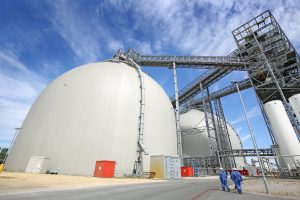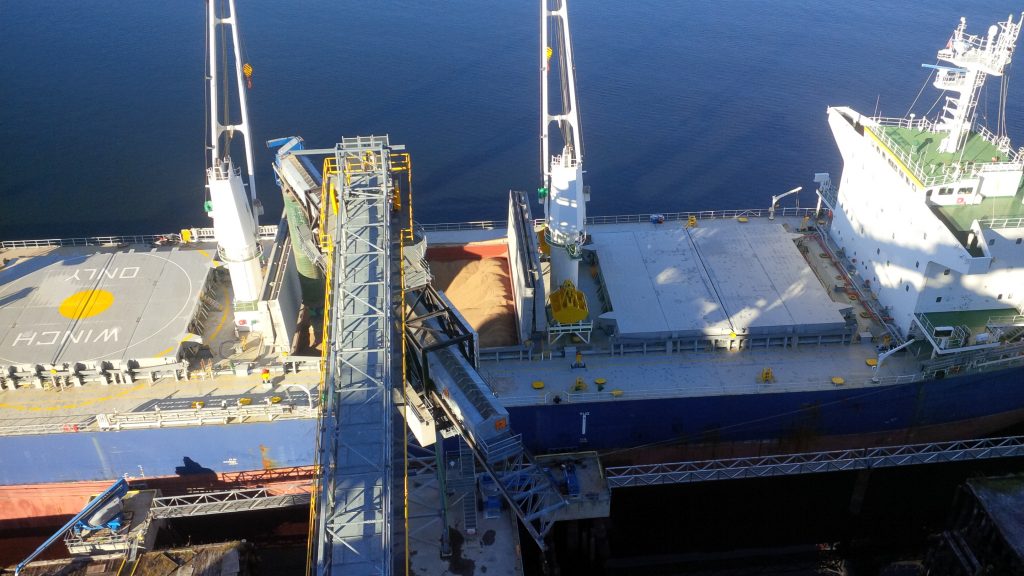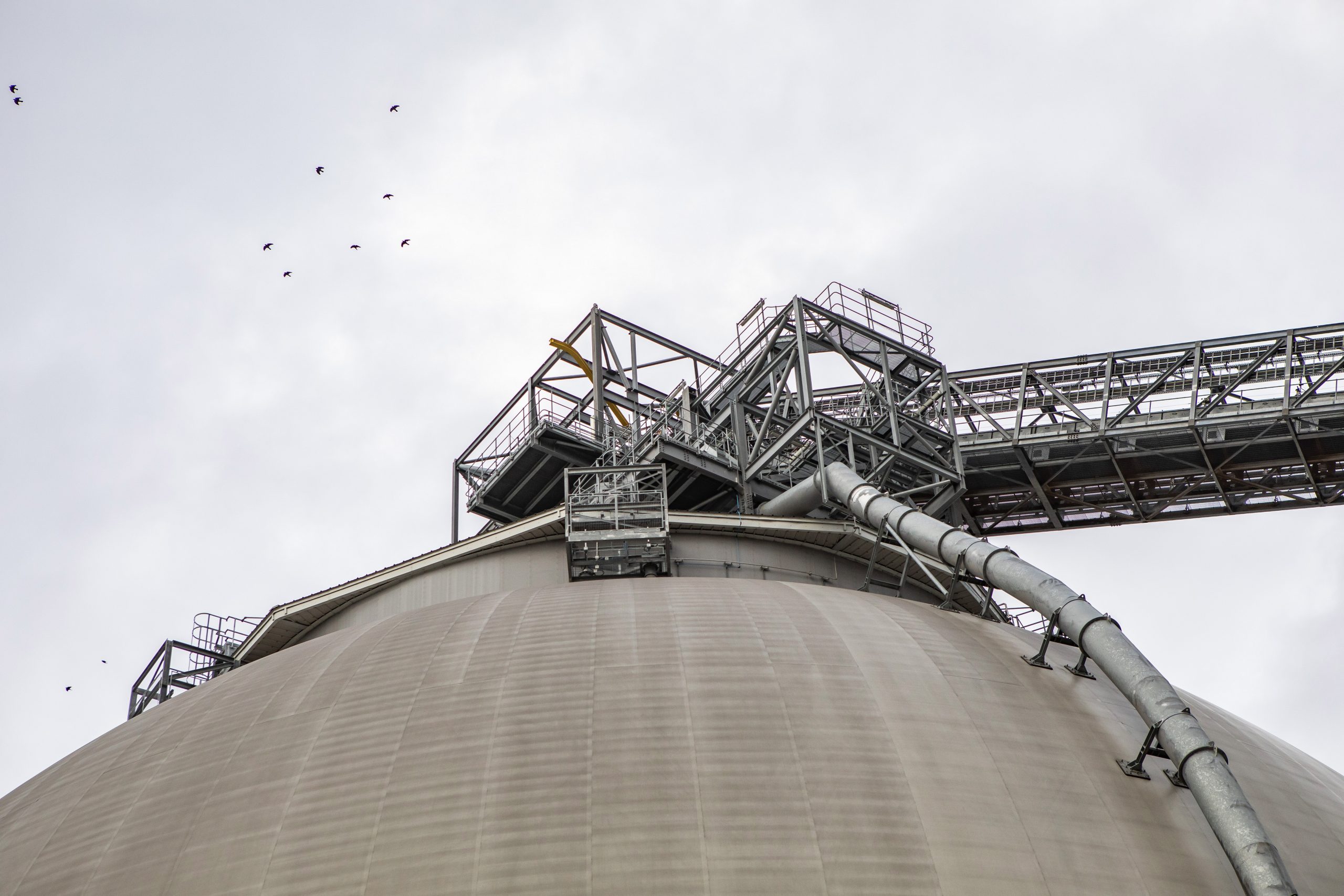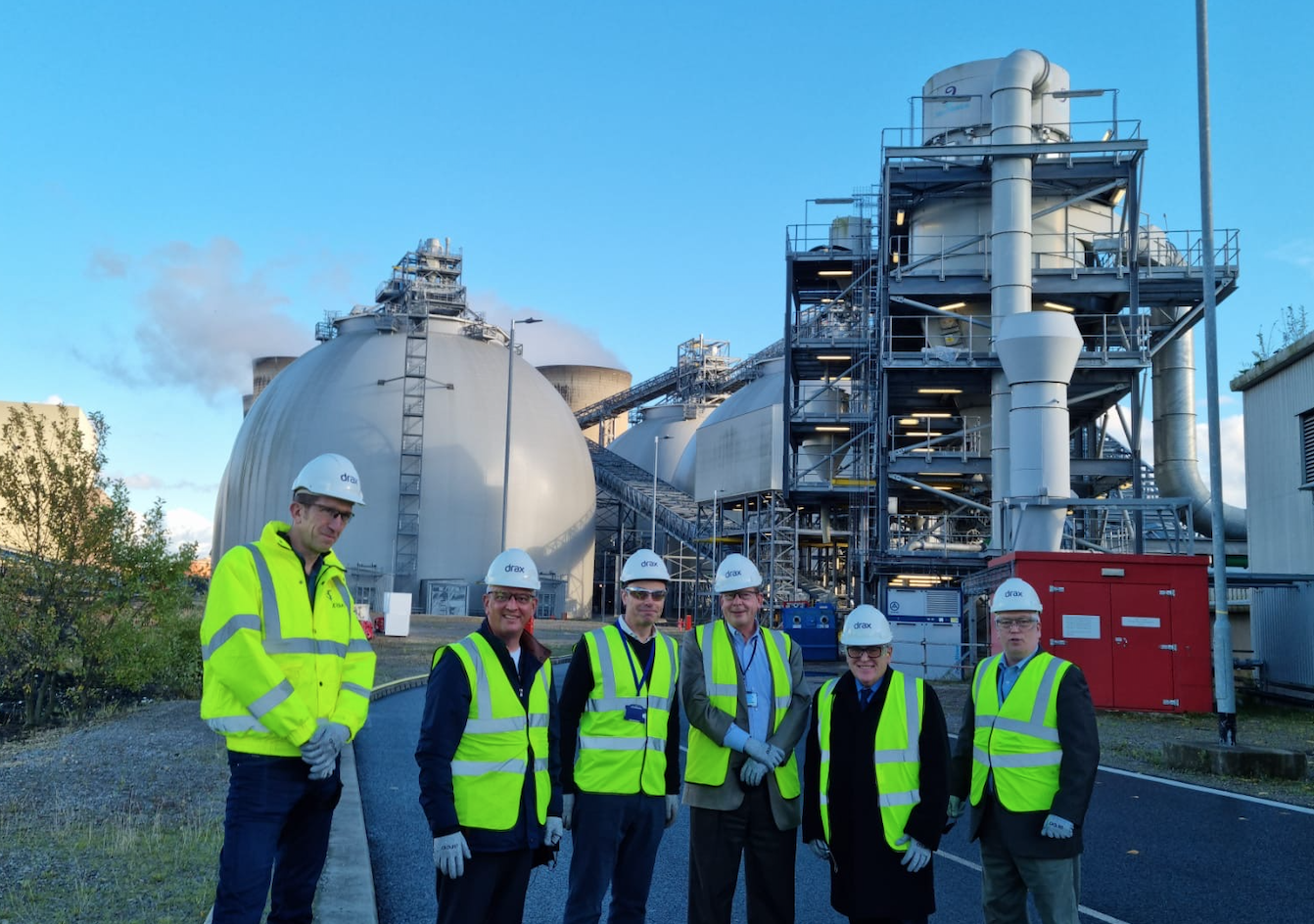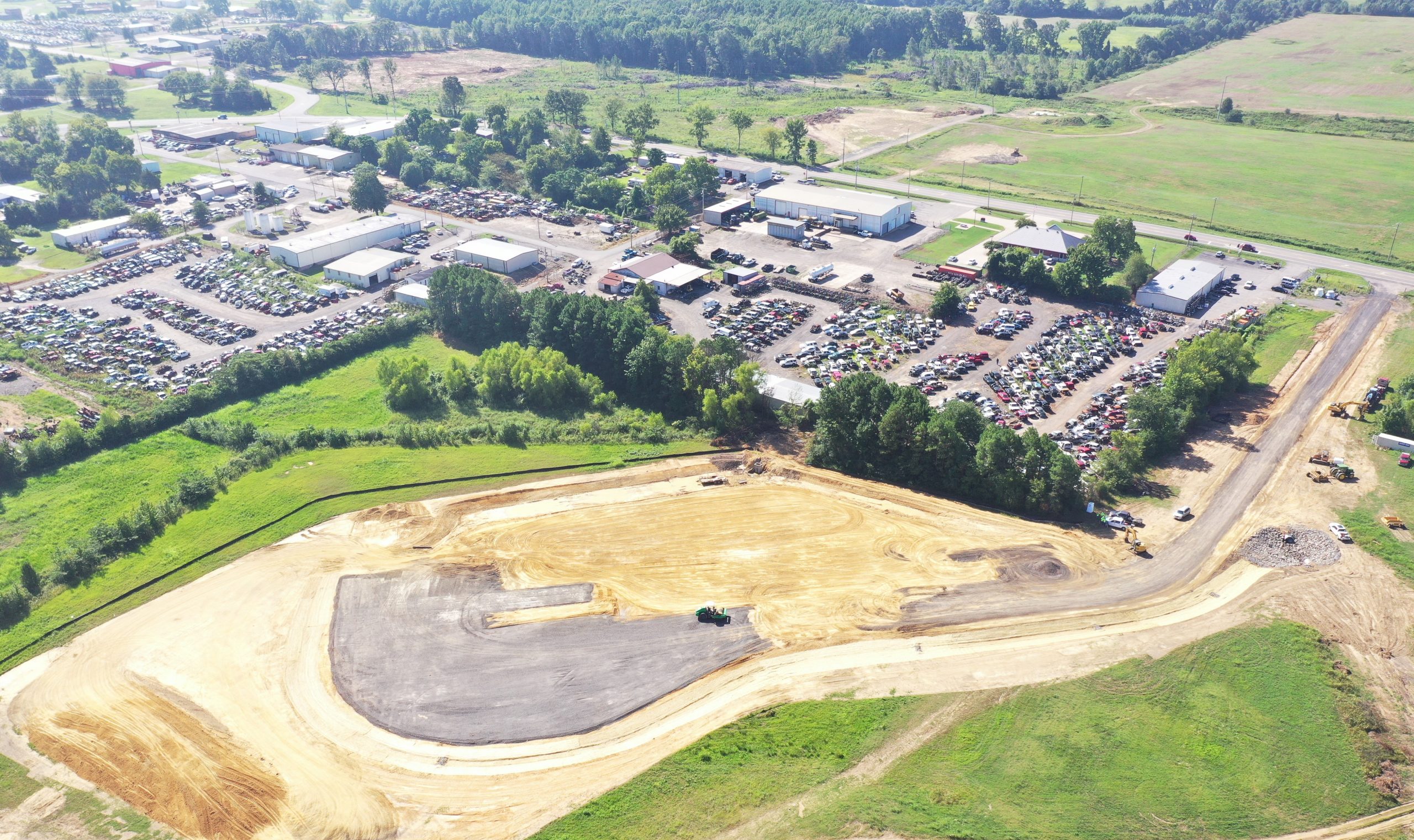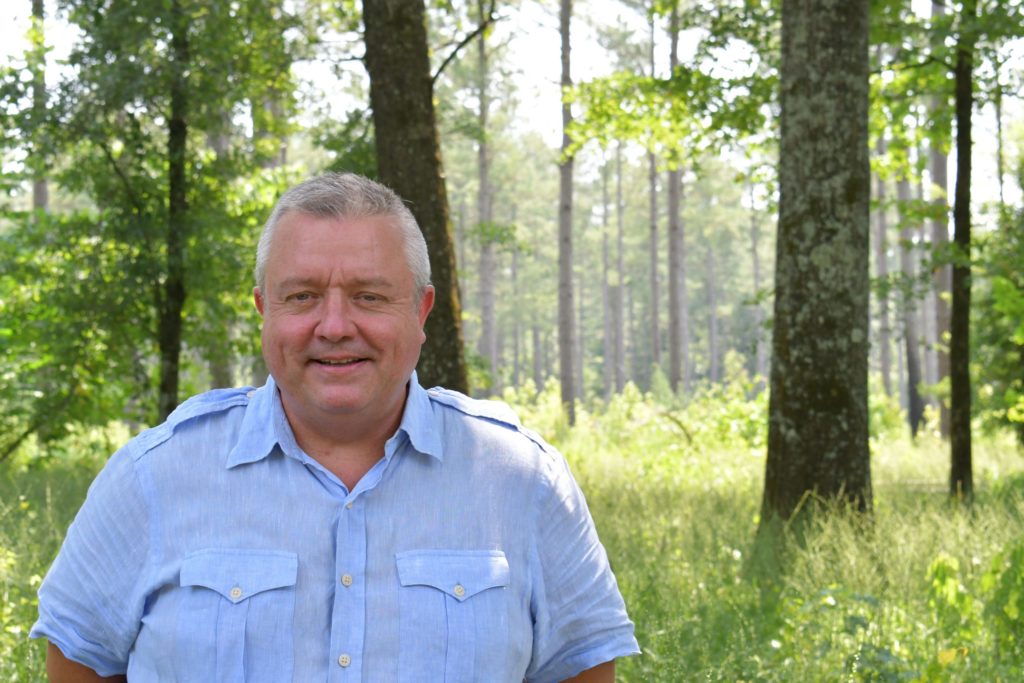
Their teacher Shanna Vallery, who nominated them, said:
“The kids were absolutely thrilled to get a visit from Ace, the Warhawk team mascot. The school and the students don’t get a lot of recognition, so this reward meant so much to me and to them. To be exposed to college at an early age shows them the options that are out there and gives them a goal to begin working towards.”
The program has been developed by Drax in partnership with the University of Louisiana at Monroe (ULM) to inspire local elementary school students to start thinking about higher education and what they can achieve, as part of the energy company’s ongoing commitment to supporting education in the communities local to its operations.
A different class each month is awarded ‘Classroom of the Month’ and receives a visit from ULM representatives to reward the pupils for their hard work and show them some of the options available in their hometown as they advance through school.
Due to Covid restrictions, in-person tours of the University have not been able to go ahead yet, however it is hoped that these will take place early next year. In the meantime, Drax has arranged for representatives from the University’s athletics department to visit the schools to talk to the students, raise awareness of the college and answer any questions they might have. The students also receive two tickets each to a Warhawk football game and meet Ace, the team mascot.
Drew Bellipanni, Partnership Services Co-ordinator at ULM, said:
“This program is a chance to give back to our local schools and teachers who have worked hard throughout the pandemic to continue teaching our children. We hope Classroom of the Month will motivate students to continue studying as well as see what college has to offer.”
Executive Vice President of Drax’s Pellet Operations, Matt White, said: “It’s so important that the next generation has equal access to education. Even though these children are in the early stages of their school careers, we hope this program will inspire them by showing them what opportunities are available to them in the future.”
Drax is committed to supporting the communities local to its operations through a variety of measures that include sponsoring educational programs and providing financial support in times of crisis, including during the Covid-19 pandemic and recent natural disasters such as Hurricane Ida.
Photo caption: Fourth graders at Riverbend Elementary School, winners of December’s Classroom of the Month with Ace, the Warhawk team mascot.
ENDS
Media contacts:
Megan Hopgood
Communications Officer
E: megan.hopgood@drax.com
T: (+44) 07936350175
Editor’s Notes
Headquartered in Monroe, LA, with operations in the Southeastern U.S., Drax is committed to supporting the communities in which it operates by promoting sustainable forestry and investing in local economic development. It is part of British energy company Drax Group.
Drax produces sustainable compressed wood pellets, used by Drax Power Station in England to generate renewable electricity for millions of UK homes and businesses.
Around two thirds of the sustainable biomass Drax uses each year comes from the US, where Drax owns and operates three pellet plants producing compressed wood pellets sourced from sustainably managed working forests in Louisiana, Arkansas and Mississippi.
The plants also deliver economic growth and jobs in the US south.
About Drax
Drax Group’s purpose is to enable a zero carbon, lower cost energy future and in 2019 announced a world-leading ambition to be carbon negative by 2030, using Bioenergy with Carbon Capture and Storage (BECCS) technology.
Its 3,400 employees operate across three principal areas of activity – electricity generation, electricity sales to business customers and compressed wood pellet production and supply to third parties.
For more information visit www.drax.com
Power generation:
Drax owns and operates a portfolio of renewable electricity generation assets in England and Scotland. The assets include the UK’s largest power station, based at Selby, North Yorkshire, which supplies five percent of the country’s electricity needs.
Having converted Drax Power Station to use sustainable biomass instead of coal it has become the UK’s biggest renewable power generator and the largest decarbonisation project in Europe. It is also where Drax is piloting the groundbreaking negative emissions technology BECCS within its CCUS (Carbon Capture Utilisation and Storage) Incubation Area.
Its pumped storage, hydro and energy from waste assets in Scotland include Cruachan Power Station – a flexible pumped storage facility within the hollowed-out mountain Ben Cruachan.
Pellet production and supply:
Drax owns and has interests in 17 pellet mills in the US South and Western Canada which have the capacity to manufacture 4.9 million tonnes of compressed wood pellets (biomass) a year. The pellets are produced using materials sourced from sustainably managed working forests and are supplied to third party customers in Europe and Asia for the generation of renewable power.
Drax’s pellet mills supply around 30% of the biomass used at its own power station in North Yorkshire, England to generate flexible, renewable power for the UK’s homes and businesses.
Customers:
Drax is the largest supplier of renewable electricity to UK businesses, supplying 100% renewable electricity as standard to more than 370,000 sites through Drax and Opus Energy.
It offers a range of energy-related services including energy optimisation, as well as electric vehicle strategy and management.
To find out more go to the website www.energy.drax.com




